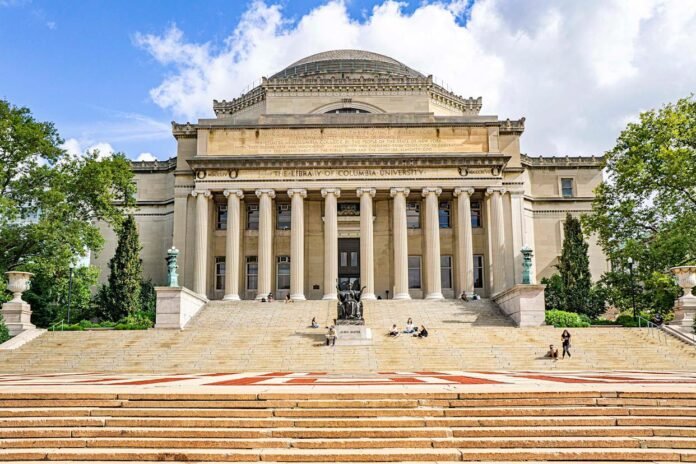In an unprecedented move, the US government has sent Columbia University what amounts to a ransom note, demanding compliance with a series of conditions to potentially recover $400 million in federal funding for scientific research that was abruptly canceled earlier this month. The letter, sent on March 13, threatens to undermine two pillars of higher education: academic freedom and faculty governance.
The government’s demands include placing Columbia’s Department of Middle Eastern, South Asian, and African Studies (Mesaas) into “receivership” for five years, effectively stripping the department of its autonomy. Mesaas, a small humanities department dedicated to studying the languages, cultures, and history of these regions, has been singled out despite its strong record of self-governance and academic excellence.
The government’s ultimatum gives Columbia until March 20 to submit a detailed plan for enforcing the receivership, with “date-certain deliverables” that could determine the university’s future access to federal funding. This direct intervention into faculty governance is without precedent in American higher education and raises serious concerns about government overreach.
The targeting of Mesaas appears to be politically motivated. The department’s faculty, like many scholars in Middle Eastern studies, have critically examined the complexities of the Israeli-Palestinian conflict, challenging narratives that justify Israel’s actions. The US government, a staunch supporter of Israel, seems intent on silencing such scholarship.
The government’s actions stem from accusations that Columbia has failed to protect students and faculty from antisemitic violence and harassment, a claim the university disputes. However, the demands go far beyond addressing campus safety, extending into the realm of academic censorship.
Columbia now faces a critical decision. If the university capitulates to the government’s demands, it risks setting a dangerous precedent for the erosion of academic freedom and faculty governance across the country. Legal experts argue that the government’s demands likely violate federal law and the US Constitution, and Columbia’s law faculty have already raised objections.
The broader implications of this standoff are alarming. The government’s actions reflect a growing trend toward educational authoritarianism, with the potential to stifle intellectual inquiry and undermine the independence of American universities.
As Columbia prepares its response, the academic community and advocates for free speech are watching closely. The university’s decision could determine not only its own future but also the fate of academic freedom in the United States.
For more political updates and analysis, visit DC Brief.


